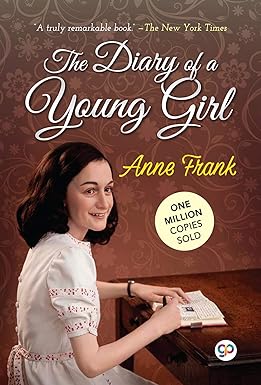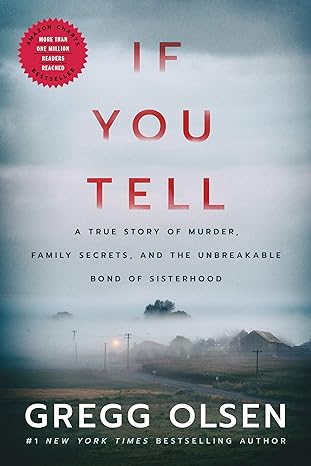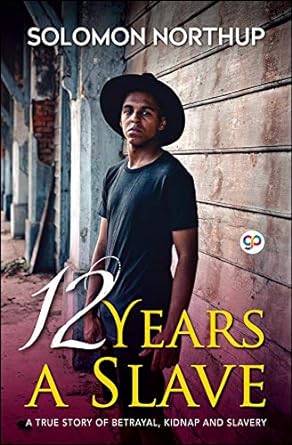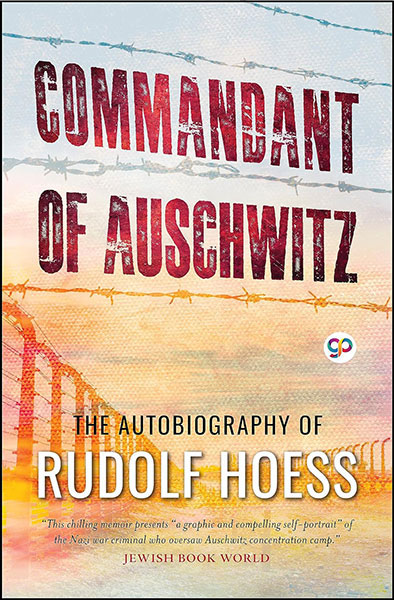
The Diary of a Young Girl
The Diary of a Young Girl started two days before Anne Frank's thirteenth birthday. In 1942, the Nazis had occupied Holland, and her family left their home to go into hiding, as they were Jews. Anne Frank recorded daily events, her personal experiences and her feelings in her diary for the next two years. Cut off from the outside world, she and her family faced hunger, boredom, claustrophobia at living in confined quarters, and the ever-present threat of discovery and death. One day, she and her family were betrayed and taken away to the Bergen-Belsen concentration camp, where she eventually died. It is a record of a sensitive girl's tragic experience during one of the worst periods in human history. This diary is so powerful that it leaves a deep impact on the mind of its readers.
BEST DEALS
About the Author
Anne Frank, a Jew of Germany, Fled from Nazis to Amsterdam in 1934 and kept a diary during her years in hiding from 1942 until people captured her family in August 1944 and sent to concentration camps, where she died of typhus at Belsen; survivors published her posthumously in 1947. Father of Annelies Marie "Anne" Frank, a girl, moved to the Netherlands in 1933, and the rest followed later. Anne, the last, came in February 1934. She wrote with four friends during the occupation of the Netherlands in World War II. Anne lived with her parents and sister during the Holocaust in the attic of office of her father to escape. During that period, she recorded her life.
Read Sample
Sunday, 14 June, 1942
On Friday, June 12th, I woke up at six o’clock and no wonder; it was my birthday. But of course I was not allowed to get up at that hour, so I had to control my curiosity until a quarter to seven. Then I could bear it no longer, and went to the dining room, where I received a warm welcome from Moortje (the cat).
Soon after seven I went to Mummy and Daddy and then to the sitting room to undo my presents. The first to greet me was you, possibly the nicest of all. Then on the table there were a bunch of roses, a plant, and some peonies, and more arrived during the day.
I got masses of things from Mummy and Daddy, and was thoroughly spoiled by various friends. Among other things I was given Camera Obscura, a party game, lots of sweets, chocolates, a puzzle, a brooch, Tales and Legends of the Netherlands by Joseph Cohen, Daisy’s Mountain Holiday (a terrific book), and some money. Now I can buy The Myths of Greece and Rome—grand!
Then Lies called for me and we went to school. During recess I treated everyone to sweet biscuits, and then we had to go back to our lessons.
Now I must stop. Bye-bye, we’re going to be great pals!
Monday, 15 June, 1942
I had my birthday party on Sunday afternoon. We showed a film The Lighthouse Keeper with Rin-Tin-Tin, which my school friends thoroughly enjoyed. We had a lovely time. There were lots of girls and boys. Mummy always wants to know whom I’m going to marry. Little does she guess that it’s Peter Wessel; one day I managed, without blushing or flickering an eyelid, to get that idea right out of her mind. For years Lies Goosens and Sanne Houtman have been my best friends. Since then, I’ve got to know Jopie de Waal at the Jewish Secondary School. We are together a lot and she is now my best girl friend. Lies is more friendly with another girl, and Sanne goes to a different school, where she has made new friends.
Saturday, 20 June, 1942
I haven’t written for a few days, because I wanted first of all to think about my diary. It’s an odd idea for someone like me to keep a diary, not only because I have never done so before, but because it seems to me that neither I—nor for that matter anyone else—will be interested in the unbosomings of a thirteen-year-old schoolgirl. Still, what does that matter? I want to write, but more than that, I want to bring out all kinds of things that lie buried deep in my heart.
There is a saying that “paper is more patient than man”; it came back to me on one of my slightly melancholy days, while I sat chin in hand, feeling too bored and limp even to make up my mind whether to go out or stay at home. Yes, there is no doubt that paper is patient and as I don’t intend to show this cardboard-covered notebook, bearing the proud name of “diary”, to anyone, unless I find a real friend, boy or girl, probably nobody cares. And now I come to the root of the matter, the reason for my starting a diary: it is that I have no such real friend.
Let me put it more clearly, since no one will believe that a girl of thirteen feels herself quite alone in the world, nor is it so. I have darling parents and a sister of sixteen. I know about thirty people whom one might call friends—I have strings of boy friends, anxious to catch a glimpse of me and who, failing that, peep at me through mirrors in class. I have relations, aunts and uncles, who are darlings too, a good home, no—I don’t seem to lack anything. But it’s the same with all my friends, just fun and joking, nothing more. I can never bring myself to talk of anything outside the common round. We don’t seem to be able to get any closer, that is the root of the trouble. Perhaps I lack confidence, but anyway, there it is, a stubborn fact and I don’t seem to be able to do anything about it.
Hence, this diary. In order to enhance in my mind’s eye the picture of the friend for whom I have waited so long, I don’t want to set down a series of bald facts in a diary like most people do, but I want this diary itself to be my friend, and I shall call my friend Kitty. No one will grasp what I’m talking about if I begin my letters to Kitty just out of the blue, so, albeit unwillingly, I will start by sketching in brief the story of my life.
My father was thirty-six when he married my mother, who was then twenty-five. My sister Margot was born in 1926 in Frankfort-on-Main, I followed on June 12, 1929, and, as we are Jewish, we emigrated to Holland in 1933, where my father was appointed Managing Director of Travies N.V. This firm is in close relationship with the firm of Kolen & Co. in the same building, of which my father is a partner.
The rest of our family, however, felt the full impact of Hitler’s anti-Jewish laws, so life was filled with anxiety. In 1938 after the pogroms, my two uncles (my mother’s brothers) escaped to the U.S.A. My old grandmother came to us, she was then seventy-three. After May 1940 good times rapidly fled: first the war, then the capitulation, followed by the arrival of the Germans, which is when the sufferings of us Jews really began. Anti-Jewish decrees followed each other in quick succession. Jews must wear a yellow star, Jews must hand in their bicycles, Jews are banned from trams and are forbidden to drive. Jews are only allowed to do their shopping between three and five o’clock and then only in shops which bear the placard “Jewish shop”. Jews must be indoors by eight o’clock and cannot even sit in their own gardens after that hour. Jews are forbidden to visit theatres, cinemas, and other places of entertainment. Jews may not take part in public sports. Swimming baths, tennis courts, hockey fields, and other sports grounds are all prohibited to them. Jews may not visit Christians. Jews must go to Jewish schools, and many more restrictions of a similar kind.
So we could not do this and were forbidden to do that. But life went on in spite of it all. Jopie used to say to me, “You’re scared to do anything, because it may be forbidden.” Our freedom was strictly limited. Yet things were still bearable.
Granny died in January 1942; no one will ever know how much she is present in my thoughts and how much I love her still.
In 1934 I went to school at the Montessori Kindergarden and continued there. It was at the end of the school year, I was in form 6B, when I had to say good-bye to Mrs. K. We both wept, it was very sad. In 1941 I went, with my sister Margot, to the Jewish Secondary School, she into the fourth form and I into the first.
So far everything is all right with the four of us and here I come to the present day.
Saturday, 20 June, 1942
Dear Kitty,
I’ll start straight away. It is so peaceful at the moment, Mummy and Daddy are out and Margot has gone to play ping-pong with some friends.
I’ve been playing ping-pong a lot myself lately. We ping-pongers are very partial to an ice cream, especially in summer, when one gets warm at the game, so we usually finish up with a visit to the nearest ice-cream shop, Delphi or Oasis, where Jews are allowed. We’ve given up scrounging for extra pocket money. Oasis is usually full and among our large circle of friends we always manage to find some kindhearted gentleman or boy friend, who presents us with more ice cream than we could devour in a week.
I expect you will be rather surprised at the fact that I should talk of boy friends at my age. Alas, one simply can’t seem to avoid it at our school. As soon as a boy asks if he may bicycle home with me and we get into conversation, nine out of ten times I can be sure that he will fall head over heels in love immediately and simply won’t allow me out of his sight. After a while it cools down of course, especially as I take little notice of ardent looks and pedal blithely on.
If it gets so far that they begin about “asking Father” I swerve slightly on my bicycle, my satchel falls, the young man is bound to get off and hand it to me, by which time I have introduced a new topic of conversation.
These are the most innocent types; you get some who blow kisses or try to get hold of your arm, but then they are definitely knocking at the wrong door. I get off my bicycle and refuse to go further in their company, or I pretend to be insulted and tell them in no uncertain terms to clear off.
There, the foundation of our friendship is laid, till tomorrow!
Yours, Anne
Sunday, 21 June, 1942
Dear Kitty,
Our whole class B, is trembling, the reason is that the teachers’ meeting is to be held soon. There is much speculation as to who will move up and who will stay put. Miep de Jong and I are highly amused at Wim and Jacques, the two boys behind us. They won’t have a florin left for the holidays; it will all be gone on betting. “You’ll move up,” “Shan’t,” “Shall,” from morning till night. Even Miep pleads for silence and my angry outbursts don’t calm them.
According to me, a quarter of the class should stay where they are; there are some absolute cuckoos, but teachers are the greatest freaks on earth, so perhaps they will be freakish in the right way for once.
I’m not afraid about my girl friends and myself; we’ll squeeze through somehow, though I’m not too certain about my math. Still we can but wait patiently. Till then, we cheer each other along.
I get along quite well with all my teachers, nine in all, seven masters and two mistresses. Mr. Keptor, the old math master, was very annoyed with me for a long time because I chatter so much. So I had to write a composition with “A Chatterbox” as the subject. A chatterbox! Whatever could one write? However, deciding I would puzzle that out later, I wrote it in my notebook, and tried to keep quiet.
That evening, when I’d finished my other homework, my eyes fell on the title in my notebook. I pondered, while chewing the end of my fountain pen, that anyone can scribble some nonsense in large letters with the words well spaced but the difficulty was to prove beyond doubt the necessity of talking. I thought and thought and then, suddenly having an idea, filled my three allotted sides and felt completely satisfied. My arguments were that talking is a feminine characteristic and that I would do my best to keep it under control, but I should never be cured, for my mother talked as much as I, probably more, and what can one do about inherited qualities? Mr. Keptor had to laugh at my arguments, but when I continued to hold forth in the next lesson, another composition followed. This time it was “Incurable Chatterbox”, I handed this in and Keptor made no complaints for two whole lessons. But in the third lesson it was too much for him again. “Anne, as punishment for talking, will do a composition entitled ‘Quack, quack, quack, says Mrs. Natterbeak.’” Shouts of laughter from the class. I had to laugh too, although I felt that my inventiveness on this subject was exhausted. I had to think of something else, something entirely original. I was in luck, as my friend Sanne writes good poetry and offered to help by doing the whole composition in verse. I jumped for joy. Keptor wanted to make a fool of me with this absurd theme, I would get my own back and make him the laughingstock of the whole class. The poem was finished and was perfect. It was about a mother duck and a father swan who had three baby ducklings. The baby ducklings were bitten to death by Father because they chattered too much. Luckily Keptor saw the joke, he read the poem out loud to the class, with comments, and also to various other classes.
Since then I am allowed to talk, never get extra work; in fact Keptor always jokes about it.
Yours, Anne
Wednesday, 24 June, 1942
Dear Kitty,
It is boiling hot, we are all positively melting, and in this heat I have to walk everywhere. Now I can fully appreciate how nice a tram is, but that is a forbidden luxury for Jews—shank’s mare is good enough for us. I had to visit the dentist in the Jan Luykenstraat in the lunch hour yesterday. It is a long way from our school in the Stadstimmertuinen, I nearly fell asleep in school that afternoon. Luckily, the dentist’s assistant was very kind and gave me a drink—she’s a good sort.
We are allowed on the ferry and that is about all. There is a little boat from the Josef Israelskade, the man there took us at once when we asked him. It is not the Dutch people’s fault that we are having such a miserable time.
I do wish I didn’t have to go to school, as my bicycle was stolen in the Easter holidays and Daddy has given Mummy’s to a Christian family for safekeeping. But thank goodness, the holidays are nearly here; one more week and the agony is over. Something amusing happened yesterday, I was passing the bicycle sheds when someone called out to me. I looked around and there was the nice-looking boy I met on the previous evening, at my girl friend Eva’s home. He came shyly towards me and introduced himself as Harry Goldberg. I was rather surprised and wondered what he wanted, but I didn’t have to wait long. He asked if I would allow him to accompany me to school. “As you’re going my way in any case, I will,” I replied and so we went together. Harry is sixteen and can tell all kinds of amusing stories. He was waiting for me again this morning and I expect he will from now on.
Yours, Anne
Tuesday, 30 June, 1942
Dear Kitty,
I’ve not had a moment to write to you until today. I was with friends all day on Thursday. On Friday we had visitors, and so it went on until today. Harry and I have got to know each other well in a week, and he has told me a lot about his life; he came to Holland alone, and is living with his grandparents. His parents are in Belgium.
Harry had a girl friend called Fanny. I know her too, a very soft, dull creature. Now that he has met me, he realizes that he was just daydreaming in Fanny’s presence. I seem to act as a stimulant to keep him awake. You see we all have our uses, and queer ones too at times!
Jopie slept here on Saturday night, but she went to Lies on Sunday and I was bored stiff. Harry was to have come in the evening, but he rang up at 6 p.m. I went to the telephone, he said, “Harry Goldberg here, please may I speak to Anne?”
“Yes, Harry, Anne speaking.”
“Hello, Anne, how are you?”
“Very well, thank you.”
“I’m terribly sorry I can’t come this evening, but I would like to just speak to you; is it all right if I come in ten minutes?”
“Yes, that’s fine, good-bye!”
“Good-bye, I’ll be with you soon.”
Receiver down.
I quickly changed into another frock and smartened up my hair a bit. Then I stood nervously at the window watching for him. At last I saw him coming. It was a wonder I didn’t dash down at once; instead I waited patiently until he rang. Then I went down and he positively burst in when I opened the door. “Anne, my grandmother thinks you are too young to go out regularly with me, and that I should go to the Leurs, but perhaps you know that I am not going out with Fanny any more!”
“No, why is that? Have you quarreled?”
“No, not at all. I told Fanny that we didn’t get on well together, so it was better for us not to go out together any more, but she was always welcome in our home, and I hope I should be in hers. You see, I thought Fanny had been going out with another boy and treated her accordingly. But that was quite untrue. And now my uncle says I should apologize to Fanny, but of course I didn’t want to do that so I finished the whole affair. That was just one of the many reasons. My grandmother would rather I went with Fanny than you, but I shan’t; old people have such terribly old-fashioned ideas at times, but I just can’t fall into line. I need my grandparents, but in a sense they need me too. From now on I shall be free on Wednesday evenings. Officially I go to wood-carving lessons to please my grandparents; in actual fact I go to a meeting of the Zionist Movement. I’m not supposed to, because my grandparents are very much against the Zionists. I’m by no means a fanatic, but I have a leaning that way and find it interesting. But lately it has become such a mess there that I’m going to quit, so next Wednesday will be my last time. Then I shall be able to see you on Wednesday evening, Saturday afternoon, Sunday afternoon, and perhaps more.”
“But your grandparents are against it; you can’t do it behind their backs!”
“Love finds a way.”
Then we passed the bookshop on the corner, and there stood Peter Wessel with two other boys; he said “Hello”— it’s the first time he has spoken to me for ages, I was really pleased.
Harry and I walked on and on and the end of it all was that I should meet him at five minutes to seven in the front of his house next evening.
Yours, Anne
Friday, 3 July, 1942
Dear Kitty,
Harry visited us yesterday to meet my parents. I had bought a cream cake, sweets, tea, and fancy biscuits, quite a spread, but neither Harry nor I felt like sitting stiffly side by side indefinitely, so we went for a walk, and it was already ten past eight when he brought me home. Daddy was very cross, and thought it was very wrong of me because it is dangerous for Jews to be out after eight o’clock, and I had to promise to be in ten to eight in future.
Tomorrow I’ve been invited to his house. My girl friend Jopie teases me the whole time about Harry. I’m honestly not in love, oh, no, I can surely have boy friends—no one thinks anything of that—but one boy friend, or beau, as Mother calls him, seems to be quite different.
Harry went to see Eva one evening and she told me that she asked him, “Who do you like best, Fanny or Anne?” He said, “It’s nothing to do with you!” But when he left (they hadn’t chatted together any more the whole evening), “Now listen, it’s Anne, so long, and don’t tell a soul.” And like a flash he was gone.
It’s easy to see that Harry is in love with me, rather fun for a change. Margot would say, “Harry is a decent lad.” I agree, but he is more than that. Mummy is full of praise: a good-looking boy, a well-behaved, nice boy. I’m glad that the whole family approve of him. He likes them too, but he thinks my girl friends are very childish, and he’s quite right.
Yours, Anne
Sunday Morning, 5 July, 1942
Dear Kitty,
Our examination results were announced in the Jewish Theatre last Friday. I couldn’t have hoped for better. My report is not at all bad, I had one vix satis, a five for algebra, two sixes, and the rest were all sevens or eights. They were certainly pleased at home, although over the question of marks my parents are quite different from most. They don’t care a bit whether my reports are good or bad as long as I’m well and happy, and not too cheeky; then the rest will come by itself. I am just the opposite. I don’t want to be a bad pupil; I should really have stayed in the seventh form in the Montessori School, but was accepted for the Jewish Secondary. When all the Jewish children had to go to Jewish schools, the headmaster took Lies and me conditionally after a bit of persuasion. He relied on us to do our best and I don’t want to let him down. My sister Margot has her report too, brilliant as usual. She would move up with cum laude if that existed at school, she is so brainy. Daddy has been at home a lot lately, as there is nothing for him to do at business; it must be rotten to feel so superfluous. Mr. Koophuis has taken over Travies and Mr. Kraler the firm Kolen & Co. When we walked across our little square together a few days ago, Daddy began to talk of us going into hiding. I asked him why on earth he was beginning to talk of that already. “Yes, Anne,” he said, “you know that we have been taking food, clothes, furniture to other people for more than a year now. We don’t want our belongings to be seized by the Germans, but we certainly don’t want to fall into their clutches ourselves. So we shall disappear of our own accord and not wait until they come and fetch us.”
“But, Daddy, when would it be?” He spoke so seriously that I grew very anxious.
“Don’t you worry about it; we shall arrange everything. Make the most of your carefree young life while you can.” That was all. Oh, may the fulfillment of these somber words remain far distant yet!
Yours, Anne
Wednesday, 8 July, 1942
Dear Kitty,
Years seem to have passed between Sunday and now. So much has happened; it is just as if the whole world had turned upside down. But I am still alive, Kitty, and that is the main thing, Daddy says.
Yes, I’m still alive, indeed, but don’t ask where or how. You wouldn’t understand a word, so I will begin by telling you what happened on Sunday afternoon.
At three o’clock (Harry had just gone, but was coming back later) someone rang the front doorbell. I was lying lazily reading a book on the verandah in the sunshine, so I didn’t hear it. A bit later, Margot appeared at the kitchen door looking very excited. “The S.S. have sent a call-up notice for Daddy,” she whispered. “Mummy has gone to see Mr. Van Daan already.” (Van Daan is a friend who works with Daddy in the business.) It was a great shock to me, a call-up; everyone knows what that means. I picture concentration camps and lonely cells—should we allow him to be doomed to this? “Of course he won’t go,” declared Margot, while we waited together. “Mummy has gone to the Van Daans to discuss whether we should move into our hiding place tomorrow. The Van Daans are going with us, so we shall be seven in all.” Silence. We couldn’t talk any more, thinking about Daddy, who, little knowing what was going on, was visiting some old people in the Joodse Invalide; waiting for Mummy, the heat and suspense, all made us very overawed and silent.
Suddenly the bell rang again. “That is Harry,” I said. “Don’t open the door.” Margot held me back, but it was not necessary as we heard Mummy and Mr. Van Daan downstairs, talking to Harry, then they came in and closed the door behind them. Each time the bell went, Margot or I had to creep softly down to see if it was Daddy, not opening the door to anyone else.
Margot and I were sent out of the room. Van Daan wanted to talk to Mummy alone. When we were alone together in our bedroom, Margot told me that the call-up was not for Daddy, but for her. I was more frightened than ever and began to cry. Margot is sixteen; would they really take girls of that age away alone? But thank goodness she won’t go, Mummy said so herself; that must be what Daddy meant when he talked about us going into hiding.
Into hiding—where would we go, in a town or the country, in a house or a cottage, when, how, where…?
These were questions I was not allowed to ask, but I couldn’t get them out of my mind. Margot and I began to pack some of our most vital belongings into a school satchel. The first thing I put in was this diary, then hair curlers, handkerchiefs, schoolbooks, a comb, old letters; I put in the craziest things with the idea that we were going into hiding. But I’m not sorry, memories mean more to me than dresses.
At five o’clock Daddy finally arrived, and we phoned Mr. Koophuis to ask if he could come around in the evening. Van Daan went and fetched Miep. Miep has been in the business with Daddy since 1933 and has become a close friend, likewise her brand-new husband, Henk. Miep came and took some shoes, dresses, coats, underwear, and stockings away in her bag, promising to return in the evening. Then silence fell on the house; not one of us felt like eating anything, it was still hot and everything was very strange. We let our large upstairs room to a certain Mr. Goudsmit, a divorced man in his thirties, who appeared to have nothing to do on this particular evening; we simply could not get rid of him without being rude; he hung about until ten o’clock. At eleven o’clock Miep and Henk Van Santen arrived. Once again, shoes, stockings, books, and underclothes disappeared into Miep’s bag and Henk’s deep pockets, and at eleven-thirty they too disappeared. I was dog-tired and although I knew that it would be my last night in my own bed, I fell asleep immediately and didn’t wake up until Mummy called me at five-thirty the next morning. Luckily it was not so hot as Sunday; warm rain fell steadily all day. We put on heaps of clothes as if we were going to the North Pole, the sole reason being to take clothes with us. No Jew in our situation would have dreamed of going out with a suitcase full of clothing. I had on two vests, three pairs of pants, a dress, on top of that a skirt, jacket, summer coat, two pairs of stockings, lace-up shoes, woolly cap, scarf, and still more; I was nearly stifled before we started, but no one inquired about that.
Margot filled her satchel with schoolbooks, fetched her bicycle, and rode off behind Miep into the unknown, as far as I was concerned. You see I still didn’t know where our secret hiding place was to be. At seven-thirty the door closed behind us. Moortje, my little cat, was the only creature to whom I said farewell. She would have a good home with the neighbours. This was all written in a letter addressed to Mr. Goudsmit.
There was one pound of meat in the kitchen for the cat, breakfast things lying on the table, stripped beds, all giving the impression that we had left helter-skelter. But we didn’t care about impressions; we only wanted to get away, only escape and arrive safely, nothing else. Continued tomorrow.
Yours, Anne
Thursday, 9 July, 1942
Dear Kitty,
So we walked in the pouring rain, Daddy, Mummy, and I, each with a school satchel and shopping bag filled to the brim with all kinds of things thrown together anyhow.
We got sympathetic looks from people on their way to work. You could see by their faces how sorry they were they couldn’t offer us a lift; the gaudy yellow star spoke for itself.
Only when we were on the road did Mummy and Daddy begin to tell me bits and pieces about the plan. For months as many of our goods and chattels and necessities of life as possible had been sent away and they were sufficiently ready for us to have gone into hiding of our own accord on July 16. The plan had had to be speeded up ten days because of the call-up, so our quarters would not be so well organised, but we had to make the best of it. The hiding place itself would be in the building where Daddy has his office. It will be hard for outsiders to understand, but I shall explain that later on. Daddy didn’t have many people working for him: Mr. Kraler, Koophuis, Miep, and Elli Vossen, a twenty-three-year-old typist who all knew of our arrival. Mr. Vossen, Elli’s father, and two boys worked in the warehouse; they had not been told.
I will describe the building: there is a large warehouse on the ground floor which is used as a store. The front door to the house is next to the warehouse door, and inside the front door is a second doorway which leads to a staircase (A). There is another door at the top of the stairs, with a frosted glass window in it, which has “Office” written in black letters across it. That is the large main office, very big, very light, and very full. Elli, Miep, and Mr. Koophuis work there in the daytime. A small dark room containing the safe, a wardrobe, and a large cupboard leads to a small somewhat dark second office. Mr. Kraler and Mr. Van Daan used to sit here, now it is only Mr. Kraler. One can reach Kraler’s office from the passage, but only via a glass door which can be opened from the inside, but not easily from the outside.
From Kraler’s office a long passage goes past the coal store, up four steps and leads to the showroom of the whole building: the private office. Dark, dignified furniture, linoleum and carpets on the floor, radio, smart lamp, everything first-class. Next door there is a roomy kitchen with a hot-water faucet and a gas stove. Next door the W.C. That is the first floor.
A wooden staircase leads from the downstairs passage to the next floor (B). There is a small landing at the top. There is a door at each end of the landing, the left one leading to a storeroom at the front of the house and to the attics. One of those really steep Dutch staircases runs from the side to the other door opening on to the street (C).
The right-hand door leads to our “Secret Annexe”. No one would ever guess that there would be so many rooms hidden behind that plain grey door. There’s a little step in front of the door and then you are inside.
There is a steep staircase immediately opposite the entrance (E). On the left a tiny passage brings you into a room which was to become the Frank family’s bed-sitting-room, next door a smaller room, study and bedroom for the two young ladies of the family. On the right a little room without windows containing the washbasin and a small W.C. compartment, with another door leading to Margot’s and my room. If you go up the next flight of stairs and open the door, you are simply amazed that there could be such a big light room in such an old house by the canal. There is a gas stove in this room (thanks to the fact that it was used as a laboratory) and a sink. This is now the kitchen for the Van Daan couple, besides being general living room, dining room, and scullery.
A tiny little corridor room will become Peter Van Daan’s apartment. Then, just as on the lower landing, there is a large attic. So there you are, I’ve introduced you to the whole of our beautiful “Secret Annexe”.
Yours, Anne
Friday, 10 July, 1942
Dear Kitty,
I expect I have thoroughly bored you with my long-winded descriptions of our dwelling. But still I think you should know where we’ve landed.
But to continue my story—you see, I’ve not finished yet—when we arrived at the Prinsengracht, Miep took us quickly upstairs and into the “Secret Annexe”. She closed the door behind us and we were alone. Margot was already waiting for us, having come much faster on her bicycle. Our living room and all the other rooms were chock-full of rubbish, indescribably so. All the cardboard boxes which had been sent to the office in the previous months lay piled on the floor and the beds. The little room was filled to the ceiling with bedclothes. We had to start clearing up immediately, if we wished to sleep in decent beds that night. Mummy and Margot were not in a fit state to take part; they were tired and lay down on their beds; they were miserable, and lots more besides. But the two “clearers-up” of the family—Daddy and myself—wanted to start at once.
The whole day long we unpacked boxes, filled cupboards, hammered and tidied, until we were dead beat. We sank into clean beds that night. We hadn’t had a bit of anything warm the whole day, but we didn’t care; Mummy and Margot were too tired and keyed up to eat, and Daddy and I were too busy.
On Tuesday morning we went on where we left off the day before. Elli and Miep collected our rations for us, Daddy improved the poor blackout, we scrubbed the kitchen floor, and were on the go the whole day long again. I hardly had time to think about the great change in my life until Wednesday. Then I had a chance, for the first time since our arrival, to tell you all about it, and at the same time to realise myself what had actually happened to me and what was still going to happen.
Yours, Anne
Saturday, 11 July, 1942
Dear Kitty,
Daddy, Mummy, and Margot can’t get used to the sound of the Westertoren clock yet, which tells us the time every quarter of an hour. I can. I loved it from the start, and especially in the night it’s like a faithful friend. I expect you will be interested to hear what it feels like to “disappear”; well, all I can say is that I don’t know myself yet. I don’t think I shall ever feel really at home in this house, but that does not mean that I loathe it here; it is more like being on vacation in a very peculiar boardinghouse. Rather a mad idea, perhaps, but that is how it strikes me. The “Secret Annexe” is an ideal hiding place. Although it leans to one side and is damp, you’d never find such a comfortable hiding place anywhere in Amsterdam, no, perhaps not even in the whole of Holland. Our little room looked very bare at first with nothing on the walls; but thanks to Daddy who had brought my film-star collection and picture postcards on beforehand, and with the aid of paste pot and brush, I have transformed the walls into one gigantic picture. This makes it look much more cheerful, and, when the Van Daans come, we’ll get some wood from the attic, and make a few little cupboards for the walls and other odds and ends to make it look more lively.
Margot and Mummy are a little bit better now. Mummy felt well enough to cook some soup for the first time yesterday, but then forgot all about it, while she was downstairs talking, so the peas were burned to a cinder and utterly refused to leave the pan. Mr. Koophuis has brought me a book called Young People’s Annual. The four of us went to the private office yesterday evening and turned on the radio. I was so terribly frightened that someone might hear it that I simply begged Daddy to come upstairs with me. Mummy understood how I felt and came too. We are very nervous in other ways, too, that the neighbours might hear us or see something going on. We made curtains straight away on the first day. Really one can hardly call them curtains, they are just light, loose strips of material, all different shapes, quality, and pattern, which Daddy and I sewed together in a most unprofessional way. These works of art are fixed in position with drawing pins, not to come down until we emerge from here.
There are some large business premises on the right of us, and on the left a furniture workshop; there is no one there after working hours but even so, sounds could travel through the walls. We have forbidden Margot to cough at night, although she has a bad cold, and make her swallow large doses of codeine. I am looking for Tuesday when the Van Daans arrive; it will be much more fun and not so quiet. It is the silence that frightens me so in the evenings and at night. I wish like anything that one of our protectors could sleep here at night. I can’t tell you how oppressive it is never to be able to go outdoors, also I’m very afraid that we shall be discovered and be shot. That is not exactly a pleasant prospect. We have to whisper and tread lightly during the day, otherwise the people in the warehouse might hear us.
Someone is calling me.
Yours, Anne
Friday, 14 August, 1942
Dear Kitty,
I have deserted you for a whole month, but honestly, there is so little news here that I can’t find amusing things to tell you every day. The Van Daans arrived on July 13. We thought they were coming on the fourteenth, but between the thirteenth and sixteenth of July the Germans called up people right and left which created more and more unrest, so they played for safety, better a day too early than a day too late. At nine-thirty in the morning (we were still having breakfast) Peter arrived, the Van Daans’ son, not sixteen yet, a rather soft, shy, gawky youth; can’t expect much from his company. He brought his cat (Mouschi) with him. Mr. and Mrs. Van Daan arrived half an hour later, and to our great amusement she had a large pottie in her hat box. “I don’t feel at home anywhere without my chamber,” she declared, so it was the first thing to find its permanent resting place under her divan. Mr. Van Daan did not bring his, but carried a folding tea table under his arm.
From the day they arrived we all had meals cozily together and after three days it was just as if we were one large family. Naturally the Van Daans were able to tell us a lot about the extra week they had spent in the inhabited world. Among other things we were very interested to hear what had happened to our house and to Mr. Goudsmit. Mr. Van Daan told us:
“Mr. Goudsmit phoned at nine o’clock on Monday morning and asked if I could come around. I went immediately and found G. in a state of great agitation. He let me read a letter that the Franks had left behind and wanted to take the cat to the neighbours as indicated in the letter, which pleased me. Mr. G. was afraid that the house would be searched so we went through all the rooms, tidied up a bit, and cleared away the breakfast things. Suddenly I discovered a writing pad on Mrs. Frank’s desk with an address in Maastricht written on it. Although I knew that this was done on purpose, I pretended to be very surprised and shocked and urged Mr. G. to tear up this unfortunate little piece of paper without delay.
“I went on pretending that I knew nothing of your disappearance all the time, but after seeing the paper, I got a brain wave. ‘Mr. Goudsmit’—I said—‘it suddenly dawns on me what this address may refer to. Now it all comes back to me, a high-ranking officer was in the office about six months ago; he appeared to be very friendly with Mr. Frank and offered to help him, should the need arise. He was stationed in Maastricht. I think he must have kept his word and somehow or other managed to get them into Belgium and then on to Switzerland. I should tell this to any friends who may inquire. Don’t, of course, mention Maastricht.’
“With these words I left the house. Most of your friends know already, because I’ve been told myself several times by different people.”
We were highly amused at the story and, when Mr. Van Daan gave us further details, laughed still more at the way people can let their imagination run away with them. One family had seen the pair of us pass on bicycles very early in the morning and another lady knew quite definitely that we were fetched by a military car in the middle of the night.
Yours, Anne












